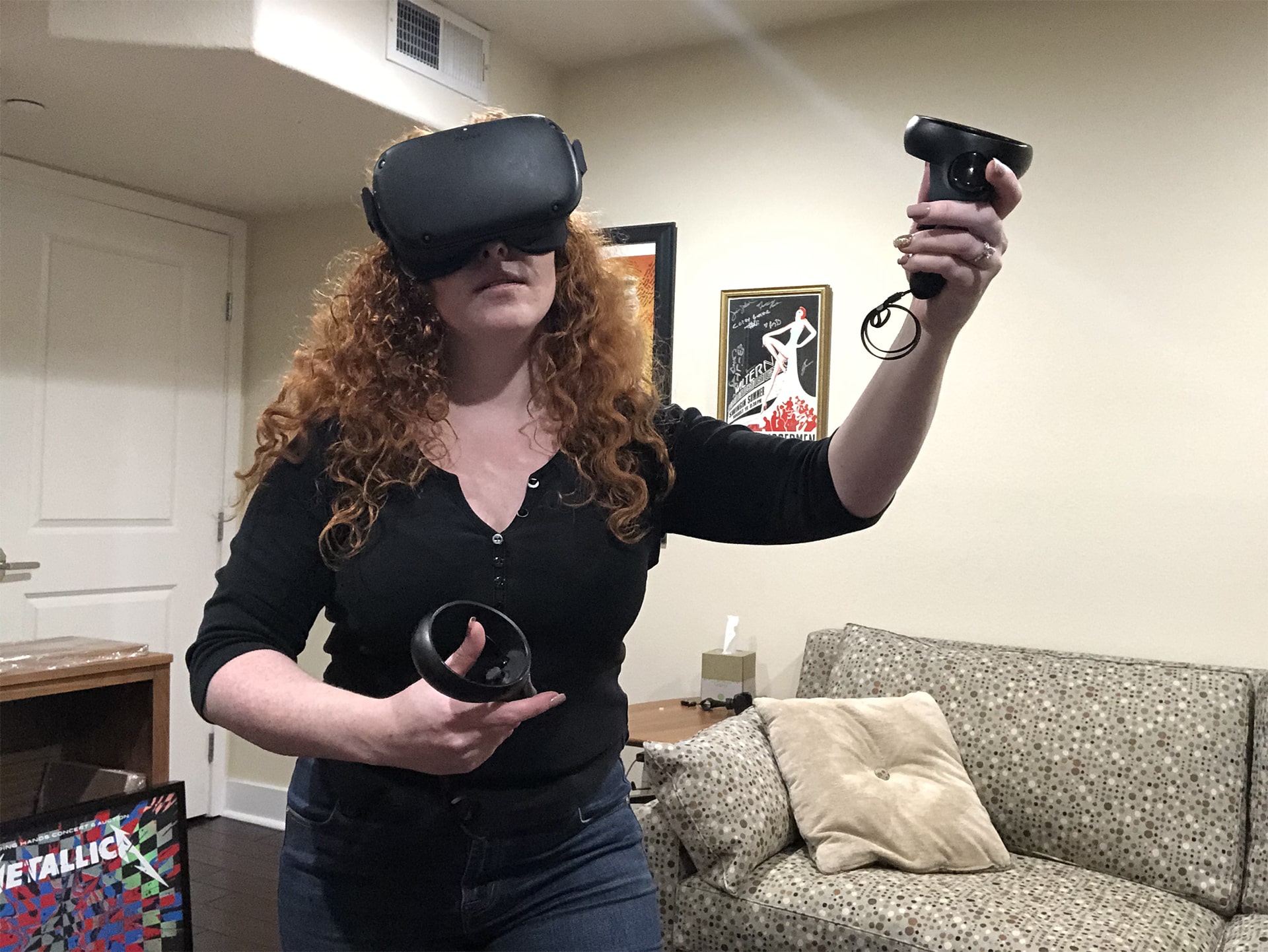Community, Leadership, Experimentation, Diversity, & Education
Pittsburgh Arts, Regional Theatre, New Work, Producing, Copyright, Labor Unions,
New Products, Coping Skills, J-O-Bs...
Theatre industry news, University & School of Drama Announcements, plus occasional course support for
Carnegie Mellon School of Drama Faculty, Staff, Students, and Alumni.
CMU School of Drama
Friday, March 19, 2021
Acting in a Virtual World
www.cmu.edu/news: For the last year, actor Whitton Frank has been immersed in virtual reality (VR). Not in her spare time as a way to pass the COVID-induced isolation period but, rather, as her profession.
Frank, a 2006 graduate of the Carnegie Mellon University BXA Intercollege Degree Programs with a bachelor of humanities and arts in drama and creative writing, puts her acting skills to use as an avatar and leads theater-goers through classics like Shakespeare's "The Tempest." It's an avenue of entertainment she never expected to pursue.
Subscribe to:
Post Comments (Atom)

4 comments:
The part where they said that the quarantine is the blessing for Virtual Reality really got me. It was one of the very few moments that I saw where the side effects of COVID actually turned out to be beneficial. Regardless of the background, I found this article very helpful as it helped me learn new information about VR technology that I was not aware of. To begin with, I did not know that VR even existed since 1990s. It was very interesting to learn what they were doing in relation to Entertainment Technology Center because I am personally interested in their offerings. I think the most “new” thing about this was that it handled the content about VR “actors,” not the audience. I have always perceived the virtual reality technology as a tool to be used with the audience for their more realistic experience. I wonder how it could enhance the quality of acting as well.
This is a really interesting concept that I think is going to be extremely more relevant in our industry and the entertainment industry as a whole. I was having a conversation with someone the other day about having live streamed productions in the way that we are having to do now. This is almost sort of a positive thing that will come out of the pandemic because we will be much better equipped to present theatre to the masses through live streaming technology. Having the ability to broadcast the actual stage live (or recorded even) would make theatre so much more accessible. We need to stop glorifying spending $250 for a broadway ticket and having a night out at the theatre with a fancy dinner and a show. It should be enjoyed and consumed by everyone regardless of economic or social status. A pretty good example of this was the whole Hamilton moving to Disney+ with closed captioning. While starting out as a super white privileged experience, it became something that a majority of people could access.
The title drew my attention for this one; I think most of the articles I read have to do with the design, tech, or management side of theater and rarely the acting part (both are equally important of course! I probably just gravitate to what I’m studying). It's interesting to read about an actor’s perspective during this pandemic; this is a different experience for all of us, something we are all adapting to for sure. The production I just finished (as a run crew member) required actors to do all of their own set up with camera, laptop, mic, headphones, lights, green screen, costumes, etc. because they were all in their own homes. While the entire tech team was there to support and help via zoom, it puts another layer of responsibility on the actors on top of knowing their lines, the show, etc. I highly recommend giving this article a read!
It is interesting how a change of perspective and point of view can drastically change the way we move forward in creating art. This article drew my attention because I have been watching certain shows and performance where digital media and virtual reality have become integral to the way a production is made, and I thought to myself,"this production was better BECAUSE of the challenges it faced regarding Covid-19. This reminded me of when the article mentioned that covid and quarantine has been a blessing for virtual reality because of the time able to be spent designing and practicing. The article is also interesting that it came up on this blog because it offers the point of view of an actor who is working through this strange ass time, something we don't really consider as designers and managers. This helped me sympathize with the extra efforts that actors have to put in to be available to film virtually wherever they re in the globe i their own homes.
Post a Comment